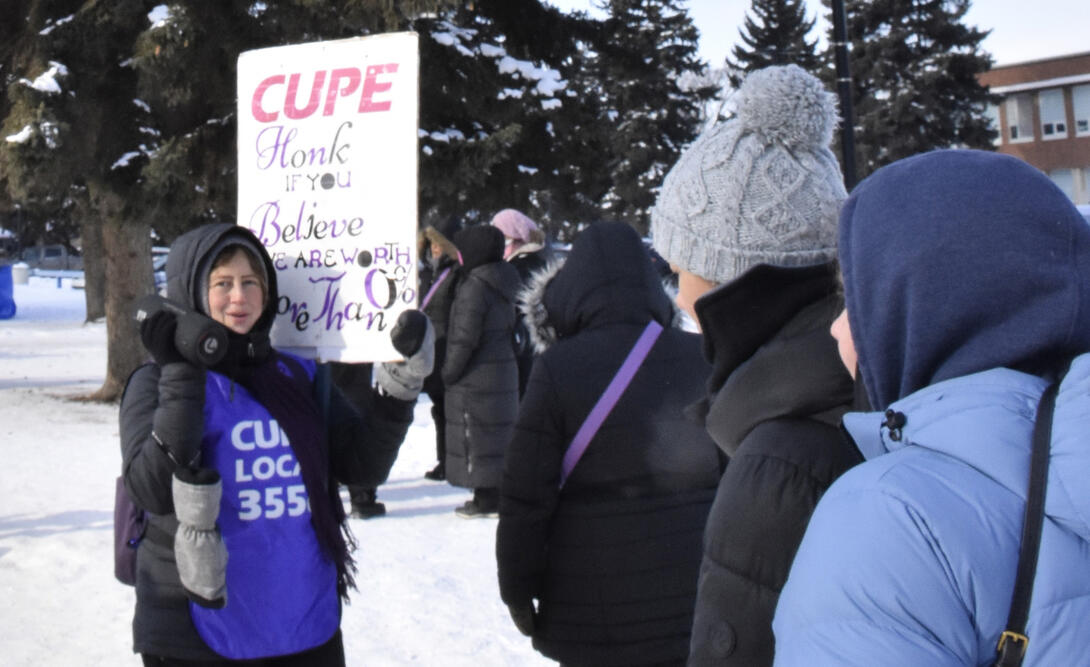The latest findings from the Canadian Teachers’ Federation (CTF/FCE) Parachute Educator Survey Series paint a stark picture of the challenges educators are facing across the country. Responses from Alberta Teachers’ Association (ATA) members epitomized some of the survey’s most notable challenges, as Alberta teachers struggle under worsening working conditions, increasing class complexity and a lack of government support. Alberta’s results not only mirror the pan-Canadian situation but, in many ways, surpass it. These findings highlight the urgency of addressing the factors contributing to teacher retention and recruitment in Alberta and across the country.
Alberta teachers facing severe working conditions
An overwhelming majority of ATA respondents describe their working conditions as poor to very poor.
- 86% of Alberta teachers report poor to very poor working conditions
- 90% of Alberta educators say their workload has become unmanageable since 2019
- 92% work over 45–48 hours per week
- 87% report struggling to cope with daily work-related stress
Compared to the national average, where nearly 80 per cent of teachers report struggling to cope, Alberta’s numbers are particularly troubling. The survey identifies three key factors exacerbating conditions in the province: the range and complexity of student needs, large class sizes and insufficient preparation time.
The growing complexity of classrooms
The increasing complexity of student needs is another pressing issue. Alberta educators cite the diversity of student needs, the number of high-needs students without adequate support and large class sizes as the top contributors to classroom complexity. Nationwide, 77 per cent of educators report that student needs have become significantly more complex in the last five years.
Top factors increasing classroom complexity in Alberta:
- Diversity of student needs
- High-needs students lacking support
- Large class sizes
Nationally, 63 per cent of educators feel unsupported by their ministries, while that number in Alberta is 82 per cent. This reinforces that while Alberta may be experiencing an extreme case, the issue is a pan-Canadian one.
Rising violence in schools
Workplace violence has become an escalating concern for educators. Alarmingly, over half of Alberta teachers reported experiencing violence in the past year.
- 55% of Alberta teachers experienced workplace violence
- 97% of incidents involved students
- 60% of verbal or physical aggression came from parents/guardians
- 16% involved school staff
Alberta respondents reported that nearly 80 per cent of violent incidents resulted in no action from safety officials. At the national level, 25 per cent of incidents received appropriate responses from safety committees — still inadequate, but a stark contrast to Alberta’s low levels of intervention.
A path forward: Addressing the crisis
Teachers in Alberta and across Canada agree on key measures needed to improve working conditions and ultimately address the recruitment and retention crisis. In Alberta, teachers overwhelmingly support the need for class-size reductions, provisions for handling class complexity and more dedicated preparation time.
- 75% of educators nationwide support class-size reductions
- 71% call for increased support staff
- 66% advocate for class complexity provisions
- 65% emphasize the need for more preparation time
These changes are critical to not only alleviating teacher burnout but also ensuring students receive the quality education they deserve.
Alberta’s teacher workforce is in crisis, facing some of the most severe working conditions in Canada. While these struggles reflect a national issue, Alberta teachers report even greater levels of stress, overwork and violence.
We are at a critical juncture in the story of Canada’s public education system; but as much as the crisis is a deafening alarm bell, it is also an undeniable rallying call.
Educators cannot afford to work in isolation as governments attempt to devalue the profession, and equipped with irrefutable evidence, must work to inspire Canadians to demand more from ministerial leadership. Educators and the children they teach deserve a safe, well-funded and inspiring public education system.
As we progress through 2025, the Canadian Teachers’ Federation will draw on our country’s rich palette of insight and paint a future so vivid and achievable that Canadians will not only admire it, but demand its realization. ❚

The PARACHUTE survey was distributed by the Canadian Teachers’ Federation (CTF/FCE) in collaboration with its 18 member organizations and was open to K–12 public school educators, including principals, vice-principals, and support staff, from October 21 to November 16, 2024. The survey garnered 4,771 complete responses. The next edition of the survey series will be launching in spring 2025.


